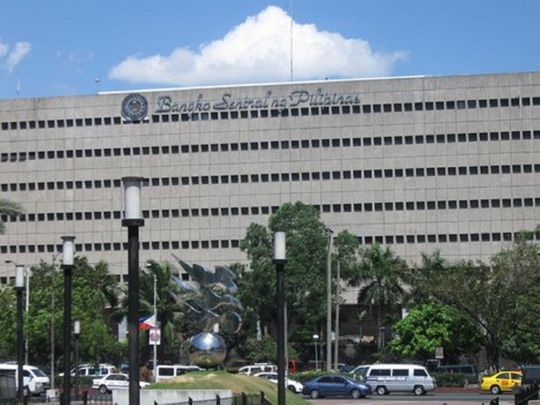
Manila: The Bangko Sentral ng Pilipinas (BSP) on Thursday raised its policy rate — the first time in over three years. It was the monetary authority’s first major action aimed to curb inflation.
The BSP now forecasts average inflation — the rate of price increases — for this year to be at 4.6 percent from 4.3 percent last March. The 2023 forecast is now at 3.9 percent from 3.6 percent.
The government has a target band of 2 percent to 4 percent inflation, but in April it went 4.9 percent year-on-year, and is expected to remain higher than desired.
At its Thursday virtual meeting, the BSP’s Monetary Board lifted the key rate by 25 basis points to 2.25%. The rates on the overnight deposit and lending facilities were likewise raised to 2% and 3%, respectively.
A higher rate of inflation could derail the economy’s recovery after two years of pandemic-driven hardship.
The last time the BSP lifted the key rate was in 2018, when inflation hit a near-decade high amid a rice supply shortage and weak peso at the time.
By raising rates — and the cost of borrowing — the monetary authority seeks to temper consumer demand to address the sharp spikes in prices.
Speaking at a virtual meeting, BSP Governor Benjamin Diokno said monetary authorities believe the economy is now strong enough to sustain its recovery with less help from the central bank.
GDP grows 8.3%
Gross domestic product grew 8.3% year-on-year in the first quarter, smashing expectations despite the Omicron onslaught at the start of the year.
"The Monetary Board noted that the strong rebound in domestic economic activity and labor market conditions during the first quarter of 2022 provides scope for the BSP to continue rolling back its pandemic-induced interventions, consistent with its exit strategy from monetary accommodation,” Diokno told a virtual meeting.
Effective May 20, 2022, the central bank’s overnight reverse repurchase (RRP) rate, which was cut by a total of 200 basis points in 2020 to a record-low 2 percent will increase to 2.25 percent.
The overnight deposit rate will also rise to 1.75 percent and the overnight lending rate to 2.75 percent.
BSP Governor Benjamin Diokno, in a virtual briefing, said baseline inflation forecasts have shifted further to the upside given the continued rise in oil prices, which has also resulted in second round effects like the increase in the minimum wage in the National Capital Region (NCR), among other areas.
The Labor department recently announced that the minimum wage in NCR will be increased by Php33 to Php570 for the non-agriculture sector and to Php533 for the agriculture sector, effective in the first week of June 2022.
4.6% inflation rate seen
The rate of price increases is also seen to peak at over 5% in the second half of the year, because of the projected jumps in oil prices, the increase in the minimum wage, the rise in Federal Reserve rates, and the slowdown in the expansion in global economic output.
It is projected to decelerate to within the government’s 2 to 4-percent target band in the second quarter of 2023.












